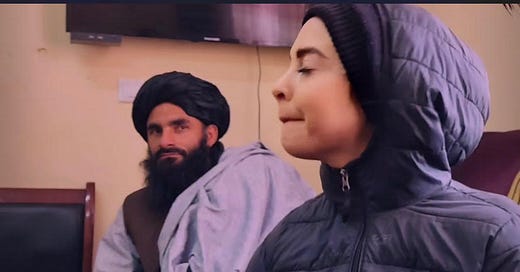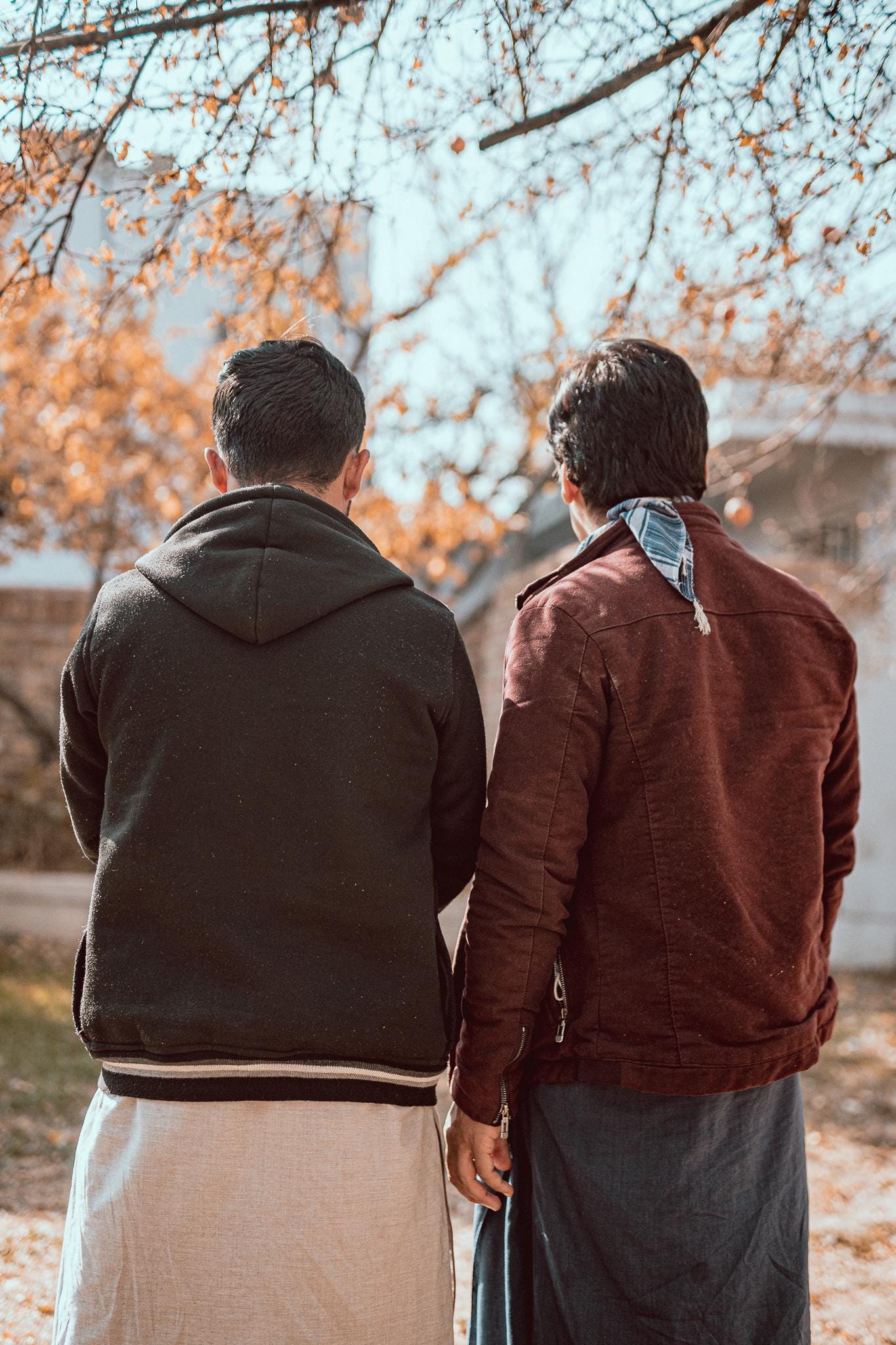Gaunt babies lay piled against each other in an assortment of cots and incubators, barely making a sound. The overstuffed wards are strangely quiet as a handful of medical staff with leathered faces and tired eyes float like ghosts from one ward to the next.
There is perhaps no worse feeling in the world than standing helplessly in a Children’s Hospital, staring into the empty eyes of the young and desperate, hamstrung to help the young and the innocent. But sadly, Kabul’s state-run Indira Gandhi Hospital is just one of many medical facilities scattered across the war-torn nation, where too many babies take their last breath.
After decades of endless wars and the Taliban back at the helm, Afghanistan now battles a conflict of a different stripe. Malnutrition is the glaring enemy. There are only two haunting choices regarding Afghanistan: try to work with the insurgency-turned-government Islamic Emirate despite their human rights violations, or turn a blind eye as innocent Afghans suffer and die.
TALKING TO TERRORISTS & THE CONSEQUENCES OF REPORTING ON A WAR
He stares menacingly – fingers clasped around his long, grey-tinged beard – never talking to me, only through me.
“I have to tell you,” says the high-ranking Taliban official, smears of sunlight contorting across his cheeks like scars as the Taliban’s white-and-black flag languishes dead still behind him. “I was part of an operation shooting down Americans.”
I examine his body language for a moment – straight back, proud, lost in his own boneyard of memories.
I think of the many U.S. military families who lost loved ones at the hand of him and his cohorts, the families who will never find real answers or closure, who will forever question the impetus of the U.S. invasion and the two decades of warfare in a nation some 7500 miles away.
“How would you feel if I went to your homeland and started recruiting your countrymen to fight its own people? Wouldn’t you want to fight us back?” he asks, somewhat rhetorically.
I say very little.
But late that night, tucked into a strange and dirty hotel room in the once Taliban stronghold of Ghazni province, I am forced to reflect upon such painful propositions. Was any of this war worth the lost lives, the lost limbs or the thousands of children who would grow old without a mother or father?
Throughout my many years of reporting from scores of war-torn and blood-stained countries, I am routinely confronted with insurgents, terrorists, criminals and killers who have boastfully taken the lives of Americans and are devoted to taking more should the opportunity arise. And yet, such a significant portion of my job is to sit with them, sip tea, dig deep into their psyche and understand why they do what they do.
It is easy to turn a blind eye, to view those “against us” as two-dimensional beings in a “good versus bad” dynamic. Yet as journalists, our job is not to give these often brutal individuals a “platform” or a “voice,” but instead to be a vehicle that helps initiate communication from “the other.” The contender who seems so far away, so adverse to our way of thinking, and so removed from my perception of what it means to value a human life.
Only our jobs are not to “stick it to them” nor interrogate. Such interviews require a sense of both compassion and compartmentalization. As a war reporter, I always seek to write from a place of humanity. Still, knowing you must sit with checkered individuals sometimes for hours or days on end induces a strong sense of moral injury.
CLICK TO READ MORE ABOUT TALKING TO TERRORISTS AND THE TALIBAN
THE US LEFT MORE THAN 100 DOGS IN KABUL — AND SOME ARE NOW IN TALIBAN HANDS
Almost three months ago, a social media firestorm erupted after users circulated an image of around 130 dogs in cages amid the frenzied US evacuation from Hamid Karzai International Airport, or HKIA. Rumors spread that the US government was leaving behind working dogs.
The Department of Defense quickly clarified that the canines did not belong to the American military but were privately owned by contractors and had been placed in the care of private nongovernmental organization Kabul Small Animal Rescue.
Charlotte Maxwell-Jones founded Small Animal Rescue in 2018 and, months after the US’ last plane left, continues to operate veterinary and rescue services across embattled Afghanistan. Of the 130 dogs left by the US — most of whom were released from their cages in the final hours of the evacuation — Small Animal Rescue has recovered around 70, she said, and she estimated that 20-30 have died.
The rest are in the hands of the Taliban, Maxwell-Jones said, though it’s unclear how the dogs were being treated or used.
“Now [the Taliban] have taken a bunch of working dogs,” Maxwell-Jones said. “I think they want to use them, but they don’t know how to use them. So they just walk them around.
“They realize that they are a necessity for more organized security than they had before.”
Maxwell-Jones surmised that the attention given to the animals on social media amid the US exit made the Taliban view the dogs as a “bargaining chip” with Western countries that staunchly value animal well-being.
Still, that was not enough to save all the dogs.
“Early on, we got some videos of working dogs getting their noses cut off, which is hideous. But we haven’t seen any of that since,” Maxwell-Jones said. “They shot some of the spaniels. Those are very friendly, so they would have run up and [the Taliban guards] would have been scared.”
The animal activist added that the clinic had located seven of the dogs in the streets after they presumably broke free of the HKIA confinement.
“There is a possibility that [the Taliban] is shuffling some of the dogs around. They recognize German shepherds as working dogs, even though the German shepherds that were there were not working dogs,” she said. “So the Taliban kennels those. There are about 40 of them there.”
On the rare occasions that I saw the dogs, they were sitting miserably on leashes outside government buildings with armed Taliban fighters trying to look tough while clearly having no idea how to orchestrate a sniff detection.
CLICK TO READ MORE ABOUT THE WORKING DOGS LEFT BEHIND
LGBT COMMUNITY FORCED INTO SEX WORK – IN FEAR FOR THEIR LIVES – AS TALIBAN RULE SOLIDIFIES ACROSS AFGHANISTAN
Himmat gazes into the distance, his bright blue eyes burnished by a terrible sadness.
“We are gay boys, but we cannot even share our problems with our families. My father or uncle will kill us. Or the Taliban will kill us,” says the young Afghan – who thinks he is about 21 or 22 and refers to his love Zubair as his wife. “We are humans; we have rights, we have a life to live. But how?”
Homosexuality has long been deemed indecent and taboo in Afghan society. However, the past two decades offered a limited form of human rights protection – which was ripped away as the Taliban assailed to power on the sultry Sunday afternoon of August 15.
For the most part, members of Afghanistan’s LGBT community have had to keep their sexual orientation deeply hidden given the country’s adherence to Shariah Law, previously as an “Islamic Republic” and now under the umbrella of “Islamic Emirate.”
“Our villagers, all of them are in a Taliban world. If they find me, they will take me to the senior Taliban. Then, without any questions or chance, they will kill us,” Himmat – who hails from the staunchly conservative Wardak province and speaks in halting English – pauses, sobbing into his scarf. “They think we are not humans.”
Beside him, Zubair slumps forward, as if bearing the weight of the world.
In rural and isolated pockets, those suspected of being gay have for decades been targeted by vigilantes and even their own family members who punish “perpetrators” in the most haunting way possible. In urban areas, gay men have long been thrown behind bars. Last year’s U.S. State Department report emphasized that LGBT people “continued to face arrest by security forces” and suffered “discrimination, assault, and rape,” including by U.S-backed Afghan police.
“In the previous government, whenever (people) would find out we are gay boys; they would directly bother us. They wanted sex work from us, and if we didn’t do it, they beat us and hurt us,” Himmat continues sadly. “Three years ago, my wife was cut with a knife.”
Zubair reveals a long and angry scar on his scalp above his ear, having been viciously attacked by a mob after leaving a dance party in Kabul.
“Those uneducated boys grabbed him and told him, ‘if you don’t have sex with us, we will kill you,” Himmat recalls.
CLICK TO READ MORE ABOUT PLIGHT OF LGBT
FROM ALCOHOL TO TOBACCO HERE'S HOW AFGHANS SKIRT CONTRABAND RULES UNDER THE TALIBAN
The moment news filtered through Kabul on that searing Sunday afternoon of August 15 in which the much-feared Taliban had taken over the Presidential Palace – those with stashes of alcohol immediately set about configuring how to dispose of the forbidden fluids.
“We did not know if the Taliban would enter our homes and what they would do to us,” one theater employee, who can only be identified as Nader, says of what he has buried. “We have everything – bottles of liquor, wine, beer.”
Months on, Nader and his colleagues are gallantly trying to fish out what they can. After all, alcohol is an even higher commodity now than ever before. Those who have grown accustomed to the taste and buzz, and for the foreigners still trickling in and out, are willing to pay top-dollar: two hundred dollars for a bottle of bourbon and as much as twenty dollars for a single can of beer.
Since the starling Taliban takeover on August 15, a multitude of hobbies and entertainment that flourished under the foreign footprint for twenty years vanished into the underground. Yet Afghans are resilient people – and life goes on. Slowly and steadily, as the new Islamic regime cements power, many are finding ways to skirt the strict interpretation of Shariah Law.
In some cases, the Taliban is willing to compromise on acts it considers antithetical to its teaching. But although they are yet to issue formal decrees, many Afghans have gone into self-censorship mode – remembering the brutal and draconian punishments handed out during its first reign in the 1990s.
For those interested in learning more about the aftermath of war, please pick up a copy of my latest book “Only Cry for the Living: Memos from Inside the ISIS Battlefield.”
Thanks again for your support. Follow me on Instagram and Twitter for more updates
Photos courtesy of my brilliant photographer @JakeSimkinPhotos. Please consider a paid subscription to allow us to continue this work.


















Share this post